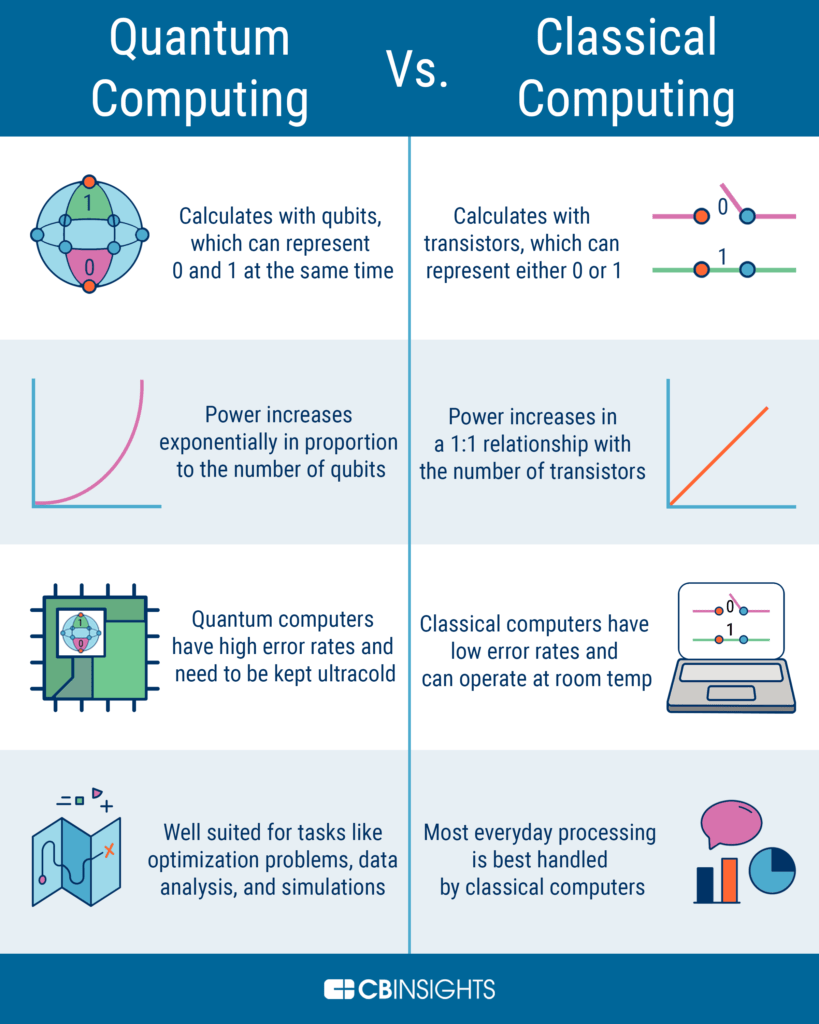Quantum computers are advancing rapidly and threaten to disrupt countless industries. We look at what sets them apart from conventional computers.
Quantum computers will soon be able to tackle certain types of problems — especially those involving a daunting number of variables and potential outcomes, like simulating drug interactions or optimizing supply chain logistics — much faster than any classical computer.
GET the 27-page quantum computing report
Download the free report to learn about the the quantum computing industry landscape and how close we are to quantum supremacy.
Below, we look at what makes quantum computing different from today’s commonplace “classical” computing.
Some key differences between quantum computers and classical computers include:
- Quantum computers process information in a fundamentally different way to classical computers. Instead of relying on transistors — which can only represent either the “1” or the “0” of binary information at a single time — quantum computers use qubits, which can represent both 0 and 1 simultaneously. Read our quantum computing explainer for more on how this works.
- A quantum computer’s power grows exponentially in relation to the number of qubits linked together. This differs from a conventional computer, which sees its power increase in direct proportion to the number of transistors. This is one reason why quantum computers could eventually handle some types of calculations much better than classical computers.
- Though quantum computers could drastically outperform classical computers at some tasks — such as optimizing delivery routes or simulating a chemical reaction — they are difficult to build and there are lots of types of calculation where they aren’t expected to offer many advantages. As such, most everyday processing will likely be better handled by conventional computers even when powerful quantum computers begin to emerge.
For more on what quantum computers are, the investment landscape, and how they’re being applied across industries, check out this report.
If you aren’t already a client, sign up for a free trial to learn more about our platform.
